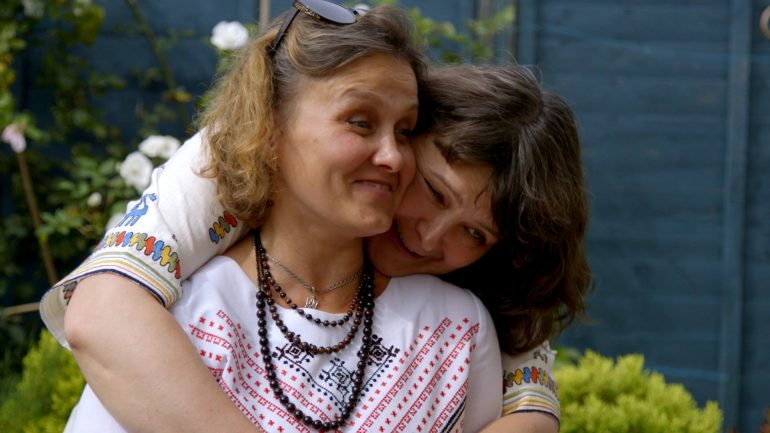In the week of the second anniversary of the Russian Invasion of Ukraine, Anna Dowell tells the stories of refugees who have found their way to the UK
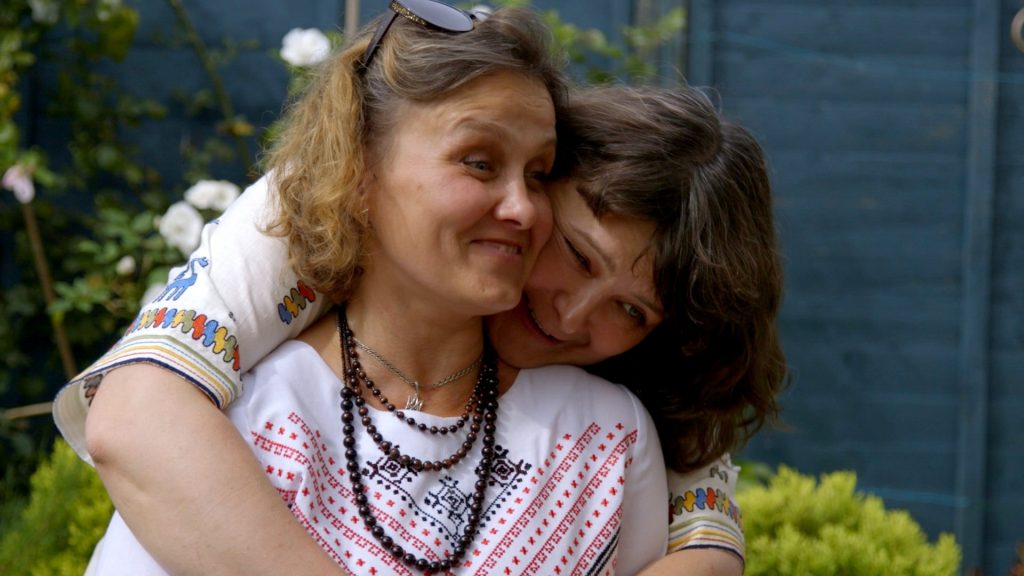
UKRAINIANS this week are marking two years since the Russian invasion that has sent thousands of them fleeing to the UK. More than 200,000 Ukrainians have had to make a new home here using hosting schemes, shared kitchens and English-language apps on their phones. Their British hosts have been doing this for years — or have never done it before.
Donetsk — Todmorden
Karen Sutcliffe-Braithwaite only became a host last year, after her husband died.
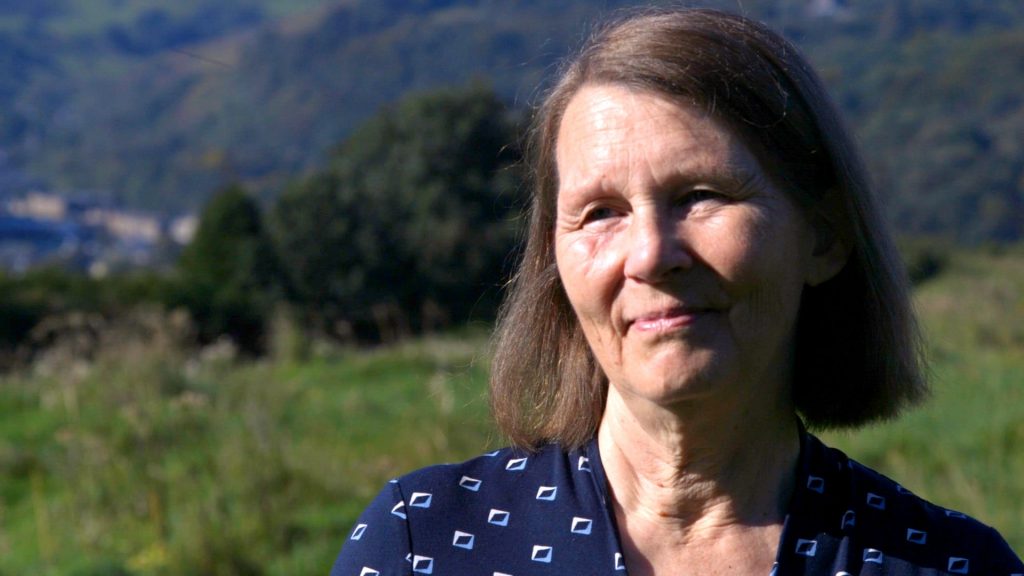
She was nervous that Olha Bulhakova might not even like her home and was relieved when she did. “It was surprisingly emotional actually,” Karen said. “On Wednesday I woke up and I was almost crying, ‘Ah this is the day!'”
Olha is a lawyer from Donetsk, and her brother is still there with his family, in the Russia-controlled east.
She can’t speak English, but the pair communicate using a translation app on Olha’s phone. It’s a cosy house, Olha says, and Karen makes her feel welcome: “It just felt right straightaway. I just felt that I would be comfortable around her.”
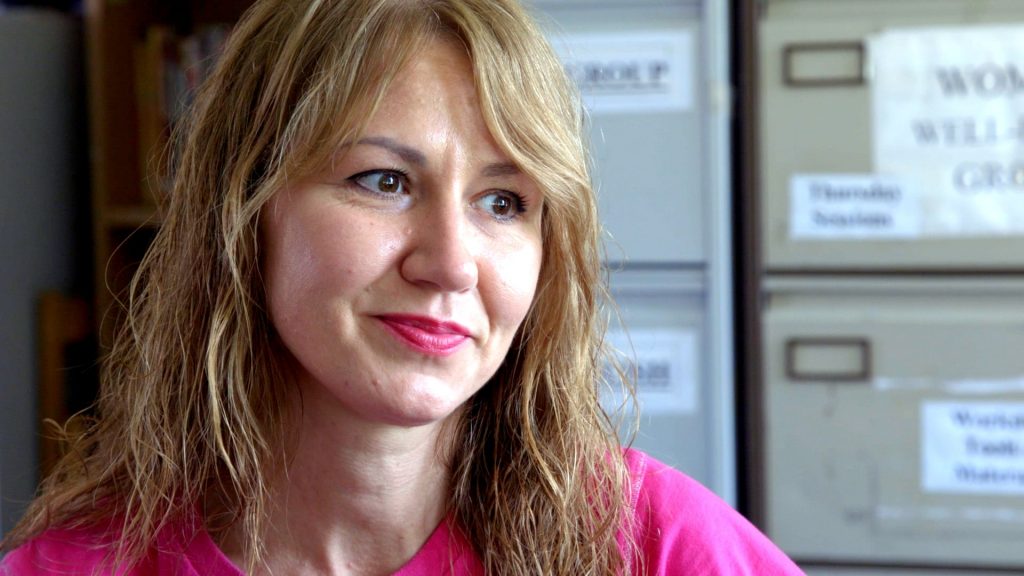
Mykolaiv — Leeds
Olena Romanova arrived in August 2022, and has had three different hosts under the Homes for Ukraine scheme.
Her first hosts were an elderly couple in Pudsey but soon after she arrived, their roof began to leak and her room became uninhabitable. She had to stay with a friend for three weeks while the council found her a new home.
The second sponsors were a couple around her age. She moved in just before Christmas but once the festivities were over the couple continued to drink heavily and she didn’t feel safe. Then they suddenly asked her to leave because they were going away.
These changes left Olena feeling disappointed in English people and made her feel even more homesick. But now she has a third home, where she says she’s very happy.
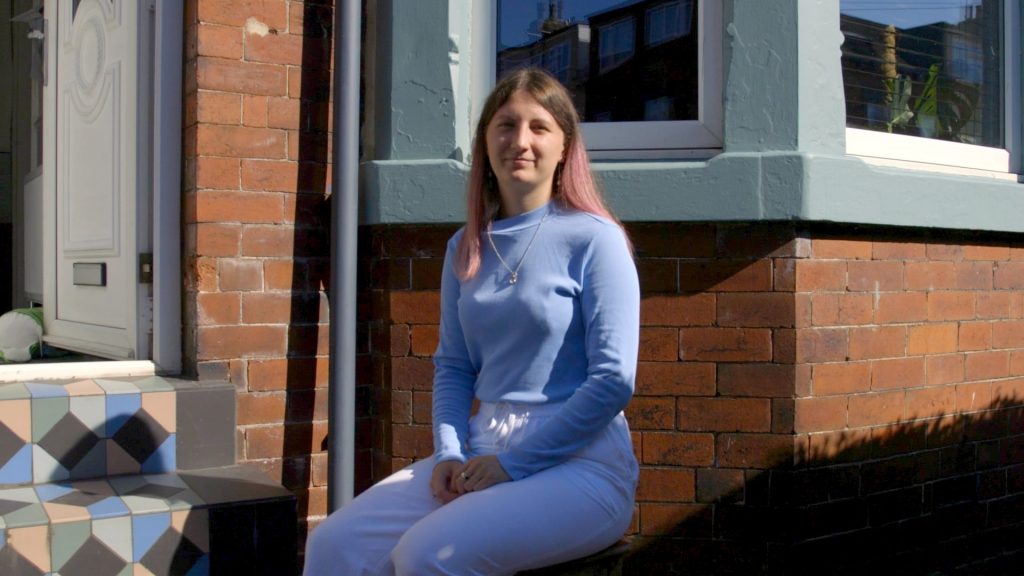
Chernihiv — Leeds
Lois Mortimer and her partner Kirsty McArthur are old hands: they’ve been welcoming asylum seekers for fifteen years in a redbrick terrace in Chapeltown, Leeds. Lois is a ‘happily retired’ English teacher and Kirsty is a mental health specialist who works with pregnant women in prisons.
Through an organisation called Artists in Exile they offered to host Dariia Chervoniak, a young embroiderer and beading artist from Chernihiv, two hours north of Kyiv. Their previous guests had stayed for just one night, or for several years.
They say hosting Dariia required more time than usual: Lois helped her study for her English exam and navigate universal credit, medical care, and other bureaucracy. But Ukrainians are made to feel more welcome than other refugees, they feel.
“There’s a safety net around Ukrainian refugees that doesn’t exist for other refugees”, said Kirsty.
“It’s been really stark how differently our country has welcomed, quite rightly, Ukrainian refugees compared with the discrimination and hostility that’s met by many other refugees”, she said.
The three women share the kitchen but the living room is a private space for Lois and Kirsty, and two attic rooms are for Dariia.
Since she arrived, Dariia has embroidered a traditional Ukrainian vyshyvanka shirt in her attic rooms. She says she’ll keep it to show her future children: “This is Ukrainian tradition: you have this blood, and you have this tradition.”
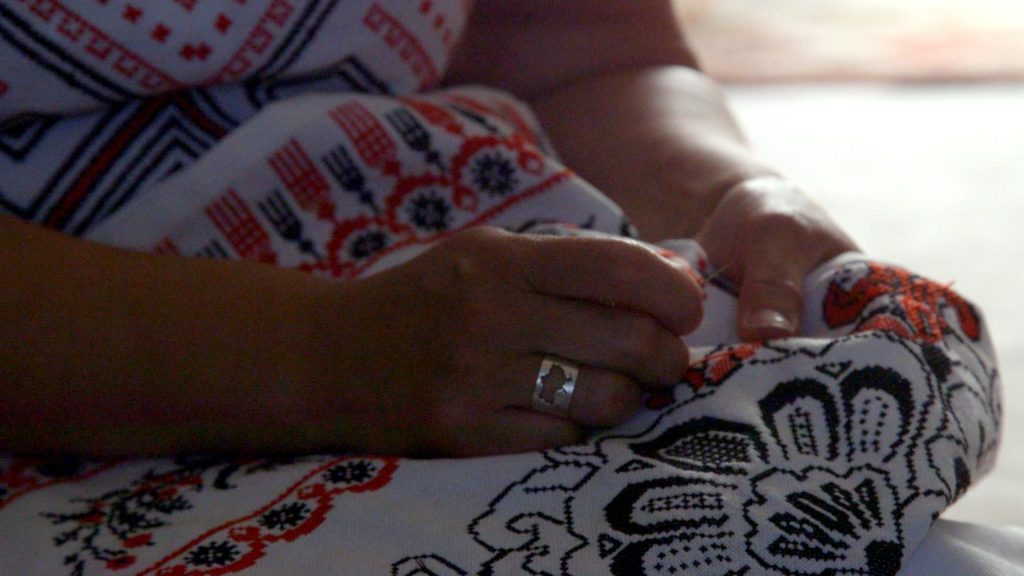
Kharkhiv — Nailsea
Liubov Kukharenko is also embroidering, for her 20-year-old son who is fighting in the Ukrainian special forces. She’s making a marriage stole for him and his fiancée.
“My child takes a weapon with his hand after being a child for nineteen years”, she said. “Every day he looks into the eyes of death. He risks his life.”
But before Liubhov could finish the stole, her son decided to marry his partner immediately: he’d been given a mission and didn’t know if he’d return. So they were married in a registration department without any guests. Liubhov hopes that one day there will be a ceremony, with family, and gifts, and a white dress.
Liubhov fled Kharkhiv with her two youngest children, Sergey and Valeria. She arrived in the UK in October 2022 but had great difficulty finding a sponsor under the Homes for Ukraine Scheme because she came with her two children and her ‘zoo’: two cats and two dogs. There was only one reply to her request for a host on Facebook. One of the dogs, “Lucky”, belongs to her son who is fighting: he says the dog made it easier to pass the Russian checkpoints.
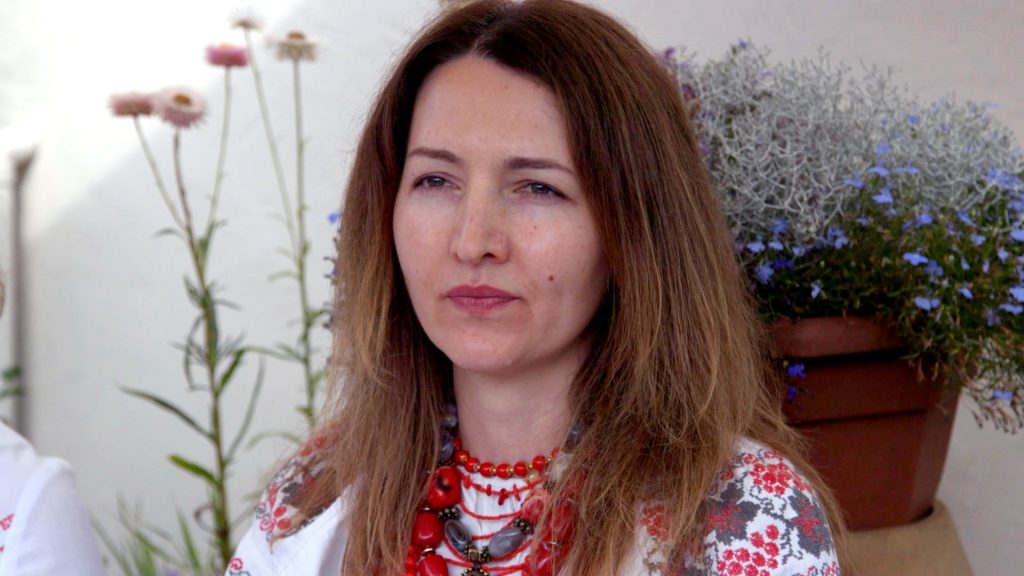
Chernihiv — Nailsea
Olha Popovych fled Ukraine after her house was shot at while she, her daughter, and husband were inside. They only survived because they hid from the onslaught in the basement.
Olha and her daughter are living in Nailsea with hosts Julia and Peter. Her husband remains in Ukraine. She said: “They helped us to realise we are in safety: that we don’t need a basement anymore to feel safe. We started to enjoy life”.
“We were in standby mode before, not living, just waiting, watching the news, seeing these horrible videos, crying, and waiting, waiting, waiting.”
Dnipro — Bristol
Kevern and Vicky Jenkin, both retired, have been hosting the Biriukova family in their home in Bristol. Vicky said: “I think we had been becoming a bit of a staid old couple whose only role is to look after grandchildren. It woke us up a bit.”
The Biriukovas are Victoria, a freelance photographer, her husband and her eight-year-old son, Oleh.
Living in the larger house made it easier to live alongside one another. Vicky and Kevern gave one living room to the Biriukovas and kept one living room as their private space. They have separate fridges and bathrooms and share the kitchen and garden.
Vicky Jenkin said, “One thing I feel sad about is that I didn’t do it for the Afghans. It didn’t occur to me to take an Afghan family.”
Having hosted the Ukrainian family, they said they thought they might host refugees from elsewhere, after a break.


